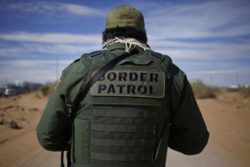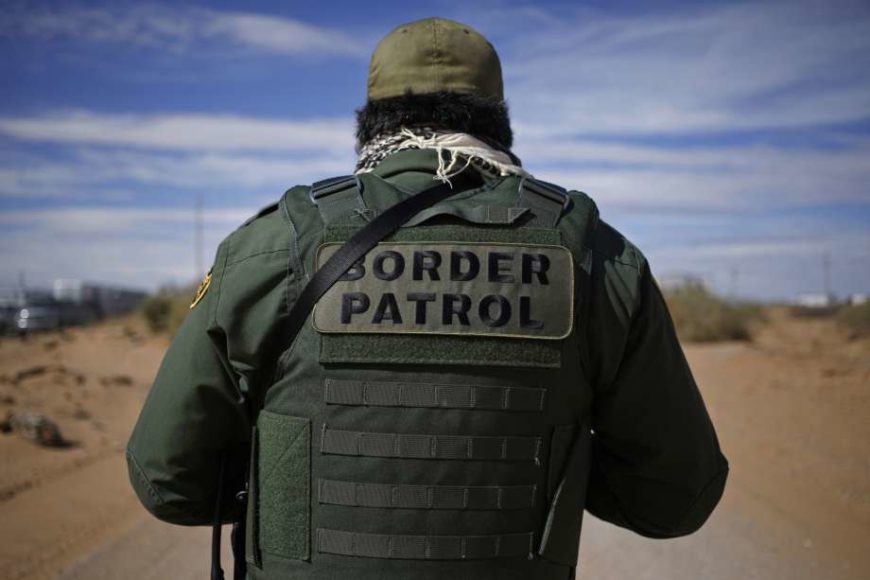“So God created man in his own image, in the image of God he created him; male and female he created them.” (Genesis 1:27)
 The United States Conference of Catholic Bishops has an excellent resource at its website that summarizes “the three fundamental teachings of the Catholic Church on immigration.” The article, written by Fr. Thomas Betz, OFC, Director of Immigration and Refugee Services for the Archdiocese of Philadelphia, is entitled: “Catholic Social Teaching on Immigration and the Movement of Peoples.” I have placed a link to the full article at the end of this post.
The United States Conference of Catholic Bishops has an excellent resource at its website that summarizes “the three fundamental teachings of the Catholic Church on immigration.” The article, written by Fr. Thomas Betz, OFC, Director of Immigration and Refugee Services for the Archdiocese of Philadelphia, is entitled: “Catholic Social Teaching on Immigration and the Movement of Peoples.” I have placed a link to the full article at the end of this post.
I have placed each of the three principles (or teachings on immigration) in a bold caption below, while providing as well a selective quote from the article which helps to explain the principle in question.
First Principle: People have the right to migrate to sustain their lives and the lives of their families
“The first principle of Catholic social teaching regarding immigrants is that people have the right to migrate to sustain their lives and the lives of their families. This is based on biblical and ancient Christian teaching that the goods of the earth belong to all people. While the right to private property is defended in Catholic social teaching, individuals do not have the right to use private property without regard for the common good.”
Second Principle: A country has the right to regulate its borders and to control immigration
“While individuals have the right to move in search of a safe and humane life, no country is bound to accept all those who wish to resettle there…. Ordinarily, people…migrate because they are desperate and the opportunity for a safe and secure life does not exist in their own land. Immigrants and refugees endure many hardships and often long for the homes they left behind. As Americans we should cherish and celebrate the contributions of immigrants and their cultures; however, we should work to make it unnecessary for people to leave their own land.
Catholic social teaching is realistic: While people have the right to move, no country has the duty to receive so many immigrants that its social and economic life are jeopardized.
For this reason, Catholics should not view the work of the federal government and its immigration control as negative or evil. Those who work to enforce our nation’s immigration laws often do so out of a sense of loyalty to the common good and compassion for poor people seeking a better life. In an ideal world, there would be no need for immigration control. The Church recognizes that this ideal world has not yet been achieved.”
Third Principle: A country must regulate its borders with justice and mercy
“A country’s regulation of borders and control of immigration must be governed by concern for all people and by mercy and justice. A nation may not simply decide that it wants to provide for its own people and no others. A sincere commitment to the needs of all must prevail.
[T]he burden of emergencies cannot be placed solely on nations immediately adjacent to the crises. Justice dictates that the world community contribute resources toward shelter, food, medical services, and basic welfare.
Even in the case of less urgent migrations, a developed nation’s right to limit immigration must be based on justice, mercy, and the common good, not on self-interest. Moreover, immigration policy ought to take into account other important values such as the right of families to live together. A merciful immigration policy will not force married couples or children to live separated from their families for long periods.
Current immigration policy that criminalizes the mere attempt to immigrate and imprisons immigrants who have committed no crime or who have already served a just sentence for a crime is immoral. In the Bible, God promises that our judgment will be based on our treatment of the most vulnerable. Before God we cannot excuse inhumane treatment of certain persons by claiming that their lack of legal status deprives them of rights given by the Creator.”
CONCLUSION: It can be seen from the first two principles that Catholic teaching on immigration is both balanced and prudent, recognizing both the right to migrate and a country’s right to regulate its borders and limit immigration for just reasons. Based on the dual virtues of justice and mercy, which spring forth from the unique and fundamental dignity of each human person created in the image and likeness of God, a country is obligated – “to the extent they are able” – to be generous in its immigration policy in order to foster the common good of humanity (see CCC 2241, set forth below). “Political authorities, for the sake of the common good for which they are responsible, may make the exercise of the right to immigrate subject to various juridical conditions, especially with regard to the immigrants’ duties toward their country of adoption” (see CCC 2241, set forth below).
Thomas L. Mulcahy, M.A.
P.S. Who would dare to deny that legitimate concerns for safety and terrorism pertain to the common good?
Additional References: Welcoming the Stranger Among Us: Unity in Diversity – United States …
Catechism of the Catholic Church, no. 2241, which states:
2241 The more prosperous nations are obliged, to the extent they are able, to welcome the foreigner in search of the security and the means of livelihood which he cannot find in his country of origin. Public authorities should see to it that the natural right is respected that places a guest under the protection of those who receive him.
Political authorities, for the sake of the common good for which they are responsible, may make the exercise of the right to immigrate subject to various juridical conditions, especially with regard to the immigrants’ duties toward their country of adoption. Immigrants are obliged to respect with gratitude the material and spiritual heritage of the country that receives them, to obey its laws and to assist in carrying civic burdens.
LINK: Here is the link to the article in question –

